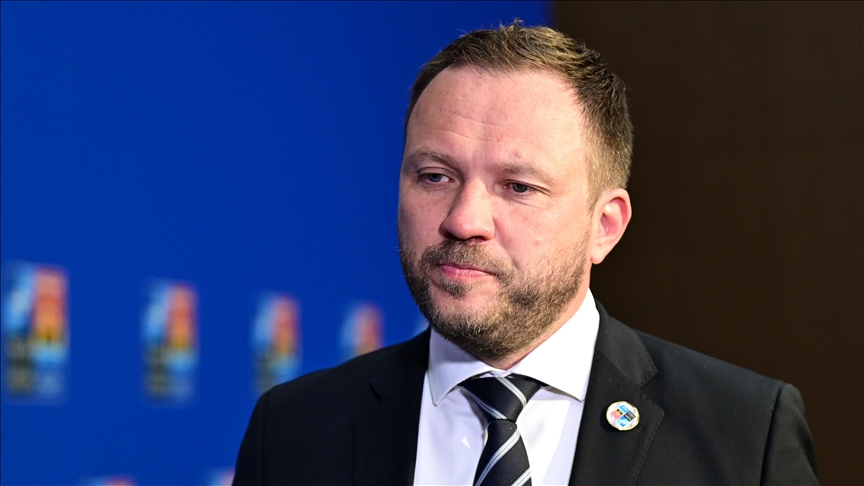Estonia threatens to block EU’s new Russia sanctions over oil price cap
Tallinn says lowering cap from $60 to $45 per barrel would be most efficient way to curb Moscow’s energy revenues
 Estonian Foreign Minister Margus Tsahkna
Estonian Foreign Minister Margus Tsahkna
ISTANBUL
Estonia has threatened to block the EU’s 18th sanctions package against Russia unless the bloc agrees to lower the oil price cap from $60 to $45 per barrel, Estonian Foreign Minister Margus Tsahkna said Wednesday.
"We are in a very clear position that the oil price cap must be part of this package," Tsahkna told Estonian broadcaster ERR, adding that reducing the cap would be "the most powerful element" in the EU’s latest attempt to curb Moscow’s energy revenues.
The EU’s current cap, introduced in 2022 when oil traded above $100 per barrel, bars EU-flagged vessels from transporting Russian crude sold above the cap. It also prohibits EU-based insurers and service providers from working with such shipments.
Oil is currently trading at around $69 per barrel.
Tsahkna also criticized efforts by some member states to water down the proposed package. According to the Estonian news portal Delfi, Mediterranean countries with large shipping sectors – particularly Malta – have pushed to exclude the oil price cap from the deal.
Estonia, however, insists the sanctions must be adopted in line with the European Commission’s original proposal.
“We have a very strong stance on this,” Tsahkna said, adding that Tallinn hopes larger EU nations will support its position.
European Commission President Ursula von der Leyen proposed lowering the cap last month as part of broader efforts to shrink Russia’s fossil fuel revenues, which help finance its war in Ukraine.
While the $60 cap has remained unchanged for over a year, there are growing signs that G7 countries and the US may now support a more aggressive approach.
Tsahkna pointed to recent signals from Washington, including a sanctions initiative led by US Senators Lindsey Graham and Richard Blumenthal, as evidence of growing momentum.
“If these measures are implemented simultaneously, it could place serious pressure on Russia,” he said.
Discussions on the EU’s new sanctions package are still ongoing, and no final decisions have been made.








